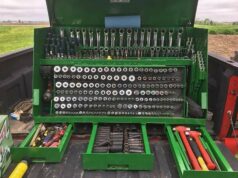
Most American homeowners experience frozen plumbing during winter. Sometimes, the pipes burst, damaging the property. It leads to additional expenses associated with the repair, cleaning, and maintenance. However, you can avoid the most common plumbing problems during winter if you know the signs to look for.
Winter is coming
According to the report published by State Farm Insurance, more than 250,000 American households experience various plumbing problems during the winter months. A lot of these cases include pipes bursting, which leads to damaging at least one room in the house.
The Institute for Business and Home Safety shows that claim payments associated with water and ice damage have amounted to more than $4 billion during the previous decade. It corresponds to 10-20% of all insurance claims made by homeowners.
Esurance Insurance Services report that the average claim for such property damage amounts to a whopping $15,000. The INBHS notes that even a small rupture can lead to more than 250 gallons of water flooding your basement in a day. If it is a multi-family building, the damage is not going to stay isolated to one unit.
Water will flood adjacent apartments and office spaces, affecting ceilings, walls, flooring, and interior decorations. The resulting damage costs can be devastating, especially if the insurance won’t cover them.
Residents and property owners must be alert to the signs of early plumbing problems before the winter season begins. Prevention is always cheaper and easier than dealing with the aftermath of a massive flood.
The 5 most common winter problems include:
- leaks;
- frozen pipes;
- clogged drains;
- heater tank malfunctions;
- ice in your septic system.
Leaking seals and fittings
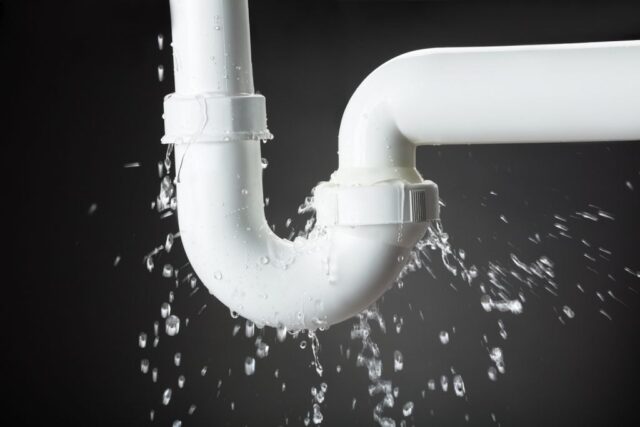
As a rule of thumb, leaks should be fixed any time they spring up, all year round. However, during cold months you’re going to deal with additional difficulties like shrinking metal pipes and expanding water. It is caused by low temperatures and affects both indoor and outdoor plumbing.
Check your fittings and damage seals. They might weaken or loosen up, which would lead to leaking and flooding. Damage from water has a long-lasting effect, especially in secluded areas of your house, like the basement (mold, concrete fractures).
Take out your toolkit at the first sign of a leak and check the seals. The situation might require replacing thread tape and O-rings. The best way to go about it is to schedule an annual fittings check-up during your fall preparations.
Frozen pipes
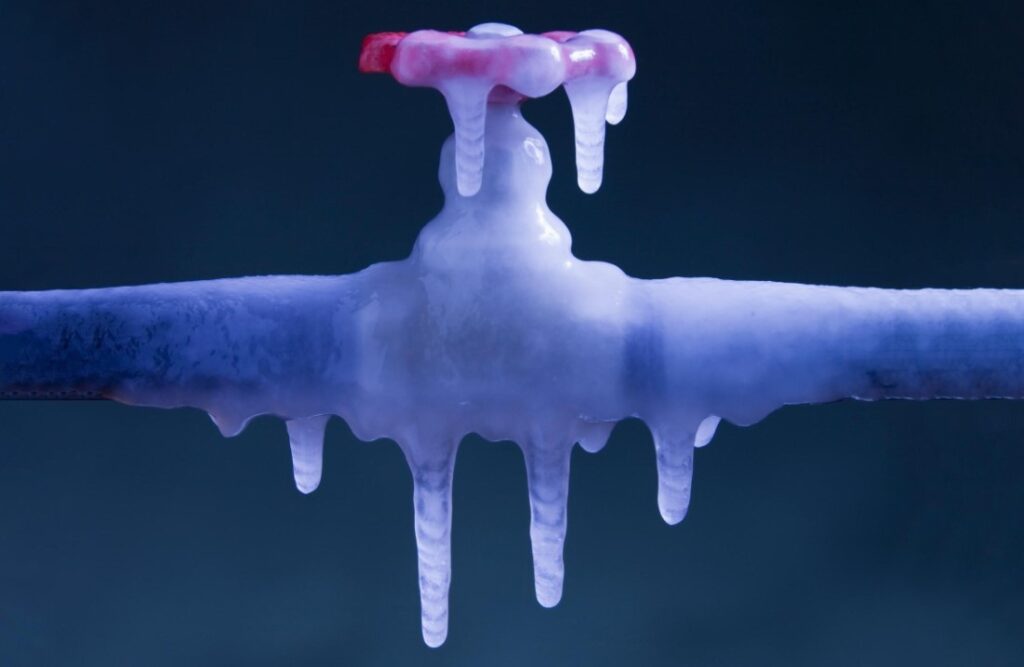
Frozen pipes are probably the most common issue that homeowners face during winter. Do you have a trusted plumbing service provider? Give them a call if you suspect ice in your system. If you live in the Chicago area, you should check here and get a quote.
In mere seconds all the water that has been backing up in the pipe because of the ice can flood your home, causing thousands of dollars in damage.
To prevent this from happening, the US Red Cross recommends opening the faucet for some time and using a portable heater, hairdryer, or an electric heating pad on the frozen segment of the pipe. If you lack these appliances, you can soak a towel in hot water and wrap it around the pipe.
After the procedure, inspect the system for any signs of leaks, faulty seals, or burst plumbing. Winterizing the pipes, especially those exposed to the elements with special insulation, is a great way to save them from freezing.
Clogged kitchen and bathroom drains
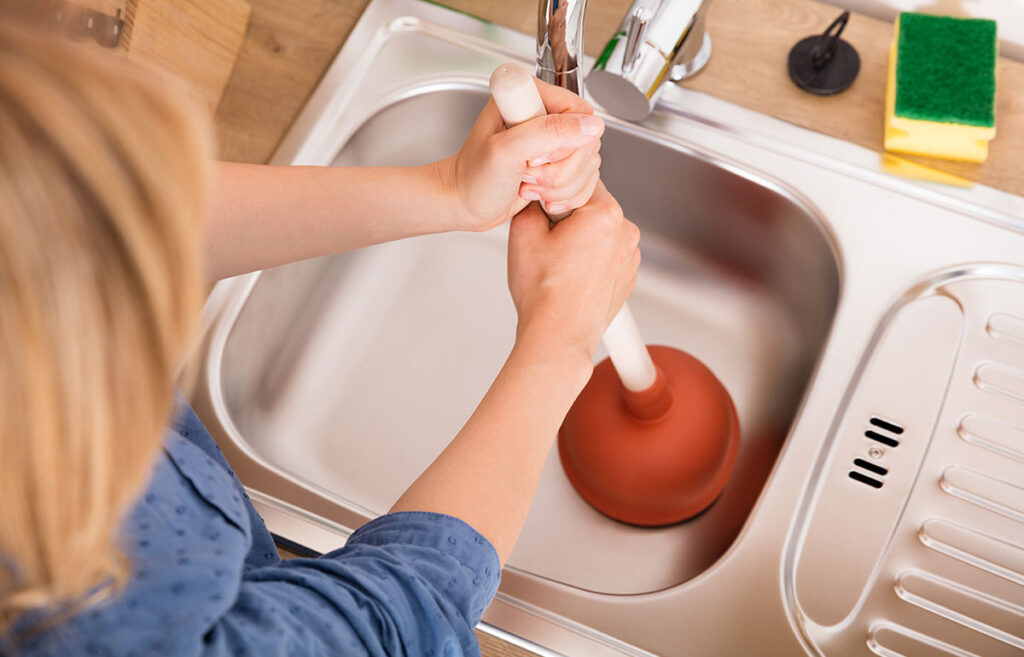
The winter holiday season means additional stress to your plumbing, especially the drains. Cooking large meals, doing a lot of dishes, guests taking baths in your house can lead to stopped-up drains. This is not a situation you’d want to have during Christmas or New Year Eve.
Avoid discarding coffee grains and cooking grease into your kitchen drain because they tend to stick to the pipe walls. Throw all food leftovers and cooking waste into the trash. Do a pre-clean before putting your plates into a dishwasher. Use special filters and covers to prevent hair from getting stuck in the shower drain.
If you have a mild case of clogging, pour special grease-destroying detergent down the drain and wait for a few minutes. Alternatively, you can use a sink plunger. If nothing seems to help, call a plumber for professional cleaning.
Malfunctioning heater
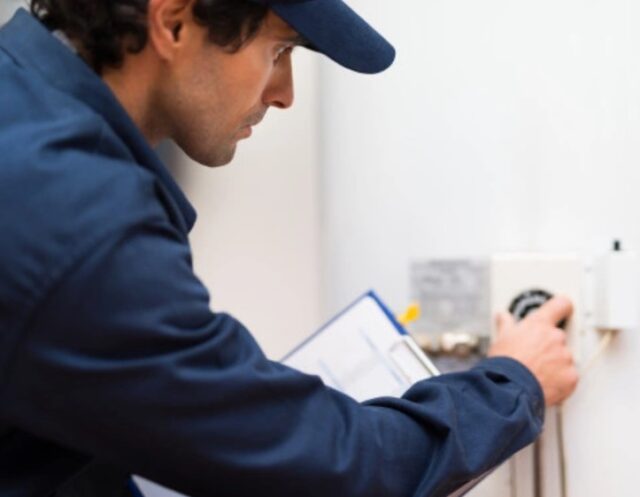
When temperatures drop below zero, your water heater has to work extra hard. Functioning at maximum capacity for several months in a row can damage your heater. To prevent that, service your appliances regularly and conduct a check-up during the fall. An average tank heater can go on for about 10 years before it needs to be replaced.
If you have an older device that doesn’t reach the necessary temperature (120° F is recommended), you should be looking for a new model. Plan for repairs and replacements ahead. You don’t want to be stuck in January with no hot water in your house.
Frozen septic tank
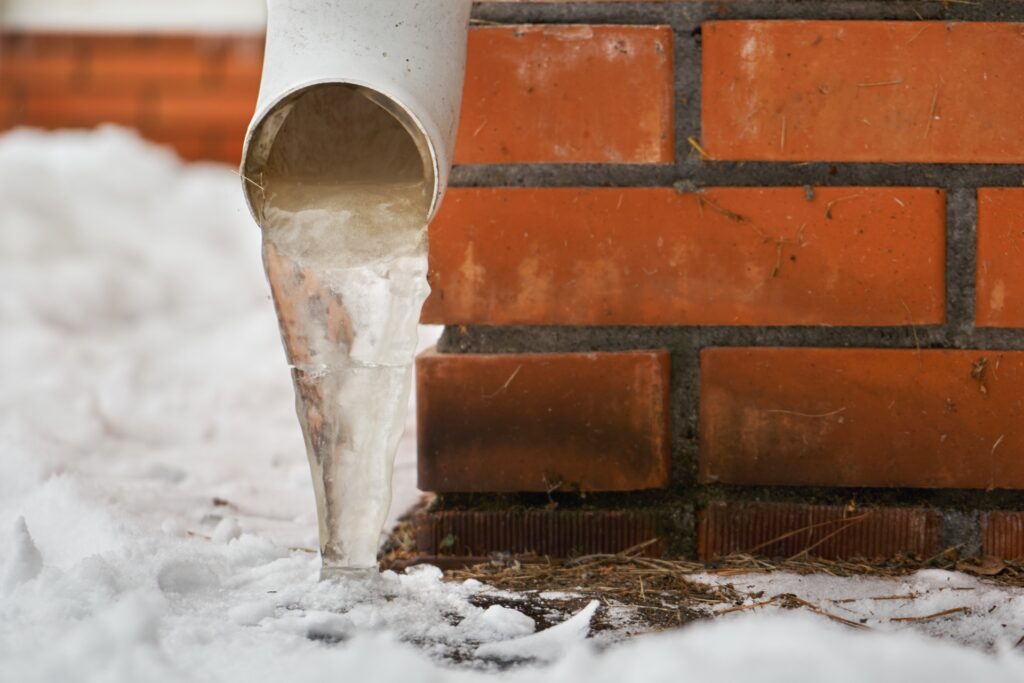
Wind and water erosion can uncover the lines that connect your septic tank to the house. If these pipes freeze, your system will shut down completely. It is not recommended to apply direct heat to these pipes.
Call a licensed plumber instead. The costs of fixing a damaged septic system and cleaning up your property are far greater than the money you think you can save by doing repairs and maintenance yourself.
Conclusion
Being proactive and looking for the early signs of problems with plumbing during winter is a great way to save money and prevent your property from being damaged. Always have a trusted plumbing service provider on a speed dial. They will help you if things have already gone haywire.


